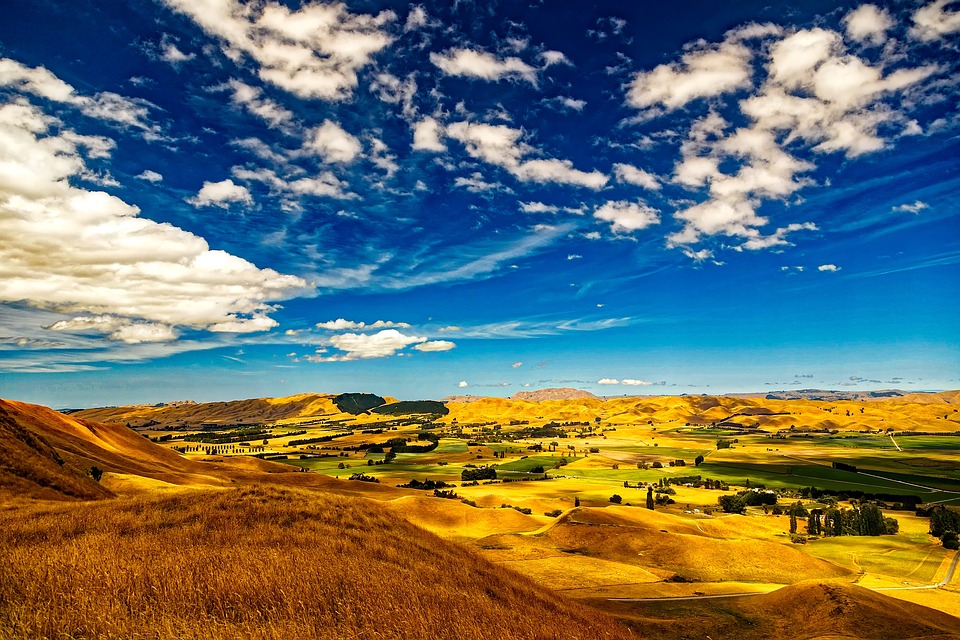With the theme of 2025 “Living in Space”, the celebration underlines how scientific innovation, international law and collaboration shape the future of a new potential chapter in human history among stars – and technologies that are already changing life at home.
Created by the UN in 1999, the Annual commemoration takes place from October 4 to 10, at the end of the book by two historical stages: the launch in 1957 of Sputnik 1, the first artificial satellite in the world, and the Treaty of the exterior space of 1967The basis of international space law.
Today, more than 90 countries are launching satellites and the The global space economy is expected to exceed $ 730 billion by 2030.
“” Space is not a distant dream. It is already a shared reality,Said Aarti Holla-Maini, Director of the United Nations Office for External Space Affairs (Oosa). “If we work together, it can help us solve the most urgent challenges of the earth.”
An observation photograph of the night land taken at the international space station, while it passes over Japan. Also on the image, a Soyuz spacecraft, connected to the mini search module of station 1 and a spaceship of progression. (File photo)
Innovation and daily life
This year’s theme invites the public to imagine life beyond the earth, from lunar bases to long-term orbital missions. But many of the technologies allowing the life of planet already underlies daily life on earth.
From solar panels to water purification systems, innovations born from space research have transformed industries and households. Satellite GPS, meteorological surveillance and telecommunications have become essential.
However, space becomes more and more congested.
In 2024, more than 45,000 human manufacturing objects orbit the earth, from active satellites to deceased spacecraft and parts. Thousands of others are planned in the coming years, which increases the risk of collisions and an increase in space waste.
The OOSA helps countries establish sustainability standards, in particular the attenuation of debris and “management of space traffic”. It maintains the United Nations register of objects in orbit and supports national laws aligned on international treaties, ensuring safe and fair access.
Beyond the earth: a moon for all
Another growing border.
More than 100 missions are planned by 2030, ranging from scientific research to commercial enterprises. OOSA’s “One Moon for All” initiative coordinates these efforts to keep exploration in safety, peaceful and inclusive.
“” These missions offer immense opportunities for knowledge and growth, but they also require careful governance and planning,Holla-Maini said.
The NASA astronaut, Scott Kelly, floated in a space march of the ISS in December 2015.
Space for development
Space is increasingly a development tool, not only for rich nations.
The UN has helped countries, including Kenya, Nepal and Guatemala, to build their first satellites and supports governments to use space data for disasters, climate monitoring and food security.
Satellite imagery also helps protect the environment, allowing nations to fight illegal fishing, monitor forest fires and prevent deforestation.
Protect the future
Multilateral cooperation is essential to maintain space without conflict and accessible to all, in particular as private companies and geopolitical tensions increase. Each Member State of the UN, spatial or not, must have a voice in governance.
This spirit of cooperation has already been tested in orbit.
Former nasa astronaut and United Nations Champion for Space Scott Kelly, recalling her 520 days on the International Space Station (ISS), described it as the ultimate demonstration of what humanity can achieve together.
“” We have built this space station … while flying around the earth at 17,500 miles per hour, in a vacuum, in temperature ranges of more or less 270 degrees, ” he saidNoting that his modules – “some of which had never been previously touched on earth” – were joined in orbit by astronauts and cosmonauts “working in these very, very difficult conditions”.
“” This space station is the most difficult thing we have ever done … If we can do it, we can do everything,»M. Kelly added, stressing that global cooperation makes it possible even the most extraordinary human efforts.
Originally published at Almouwatin.com








